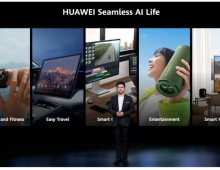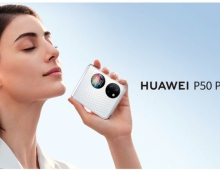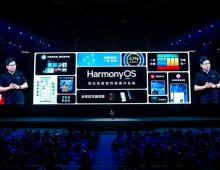
Huawei Sues U.S. Over Equipment Ban
Huawei Technologies has sued the U.S. government for barring its equipment from certain networks.
The lawsuit is aimed at a U.S. statute that blocks government agencies from using equipment from Huawei and its domestic rival ZTE Corp., according to a complaint filed in federal court in Texas. Huawei argues in the suit that it’s unconstitutional to single out a person or a group for penalty without a fair trial.
The U.S. has been trying to persuade other countries to ban Huawei gear from crucial fifth-generation communications networks. The complaint landed days after finance chief Meng Wanzhou sued Canada’s government for allegedly trampling her constitutional rights during her December arrest.
In its U.S. case, Huawei is taking aim at a provision in the 2019 National Defense Authorization Act (NDAA.) That provision bars any executive agency, government contractor or company that receives a government loan or grant from using Huawei and ZTE equipment, according to the complaint. The Chinese company argues that the provision is a bill of attainder, a legislative punishment without trial that’s prohibited by the U.S. Constitution.
"The U.S. Congress has repeatedly failed to produce any evidence to support its restrictions on Huawei products. We are compelled to take this legal action as a proper and last resort," Guo Ping, Huawei Rotating Chairman said. "This ban not only is unlawful, but also restricts Huawei from engaging in fair competition, ultimately harming U.S. consumers. We look forward to the court's verdict, and trust that it will benefit both Huawei and the American people."
According to the complaint, Section 889 of the 2019 NDAA not only bars all U.S. Government agencies from buying Huawei equipment and services, but also bars them from contracting with or awarding grants or loans to third parties who buy Huawei equipment or services, without any executive or judicial process.
Song Liuping, Huawei's Chief Legal Officer, stressed, "Section 889 is based on numerous false, unproven, and untested propositions. Contrary to the statute's premise, Huawei is not owned, controlled, or influenced by the Chinese government. Moreover, Huawei has an excellent security record and program. No contrary evidence has been offered."
From Huawei's perspective, the NDAA restrictions prevent the company from providing more advanced 5G technologies to U.S. consumers, which will delay the commercial application of 5G, in turn, impeding efforts to improve the performance of 5G networks in the U.S. Beyond this, network users in rural and remote regions of the U.S. will be forced to choose between government funding and high-quality, cost-effective products. This will impede the network upgrade process, thus widening the digital divide. Even worse, the restrictions on Huawei will stifle competition, leaving U.S. consumers paying higher prices for inferior products.
Countries are preparing to spend billions on new 5G equipment aimed at enabling everything from smart highways to self-driving cars. The world’s top provider of networking gear faces the prospect of being shut out of pivotal infrastructure markets.





















